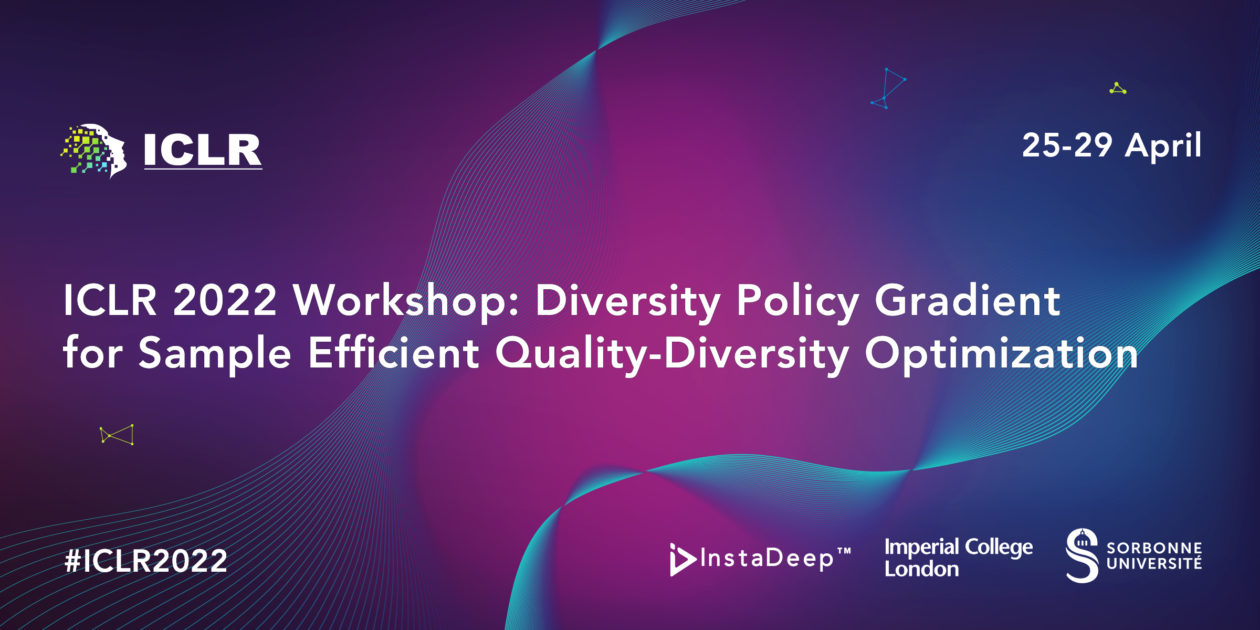InstaDeep proudly announces that a co-authored research paper on Diversity Policy Gradient for Sample Efficient Quality-Diversity Optimization has been accepted by ICLR and will be presented at a workshop during the week-long event. This latest acceptance – on the tenth anniversary of ICLR – continues InstaDeep’s track record of producing high quality research in collaboration with academics at some of the world’s most prestigious research institutions.
The Diversity Policy Gradient for Sample Efficient Quality-Diversity Optimization paper proposes a novel algorithm which combines the strength of Policy Gradient algorithms and Quality Diversity approaches to produce a collection of diverse and high-performing neural policies in continuous control environments.
This short video provides an overview of the research:
The paper was written by Thomas Pierrot and Valentin Macé, along with Felix Chalumeau, Arthur Flajolet, Geoffroy Cideron and Karim Beguir of InstaDeep; and in collaboration with Antoine Cully at Imperial College London, Olivier Sigaud and Nicolas Perrin-Gilbert from Sorbonne Université, France.
The full paper can be accessed on arXiv.org and registered attendees can attend the “Workshop on Agent Learning in Open-Endedness” workshop at 8.45am (BST) on Friday 29 April, where several of the authors will be available to discuss the research. Registration details and the schedule for the all-virtual ICLR 2022 conference can be found here.
>> WANT TO JOIN THE TEAM? InstaDeep is actively hiring research scientists across a range of theoretical and applied focuses. All open opportunities are listed at www.instadeep.com/careers.
About ICLR
The International Conference on Learning Representations (ICLR) is the premier gathering of professionals dedicated to the advancement of the branch of artificial intelligence called representation learning, but generally referred to as deep learning.
ICLR is globally renowned for presenting and publishing cutting-edge research on all aspects of deep learning used in the fields of artificial intelligence, statistics and data science, as well as important application areas such as machine vision, computational biology, speech recognition, text understanding, gaming, and robotics.
Participants at ICLR span a wide range of backgrounds, from academic and industrial researchers, to entrepreneurs and engineers, to graduate students and postdocs.
